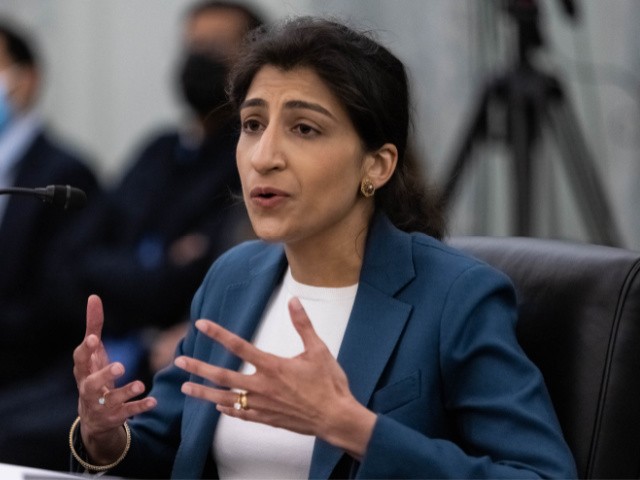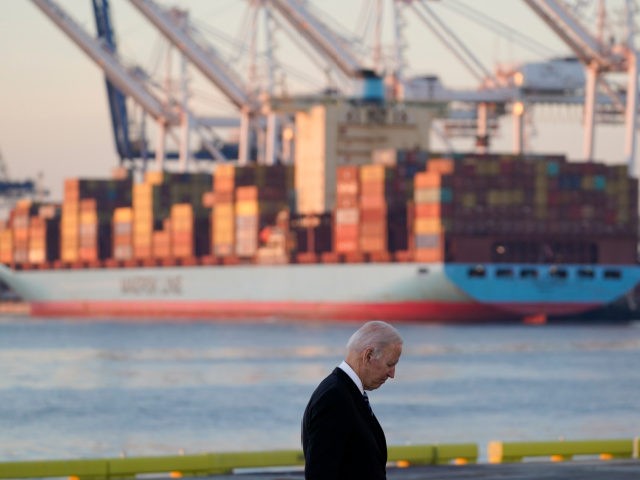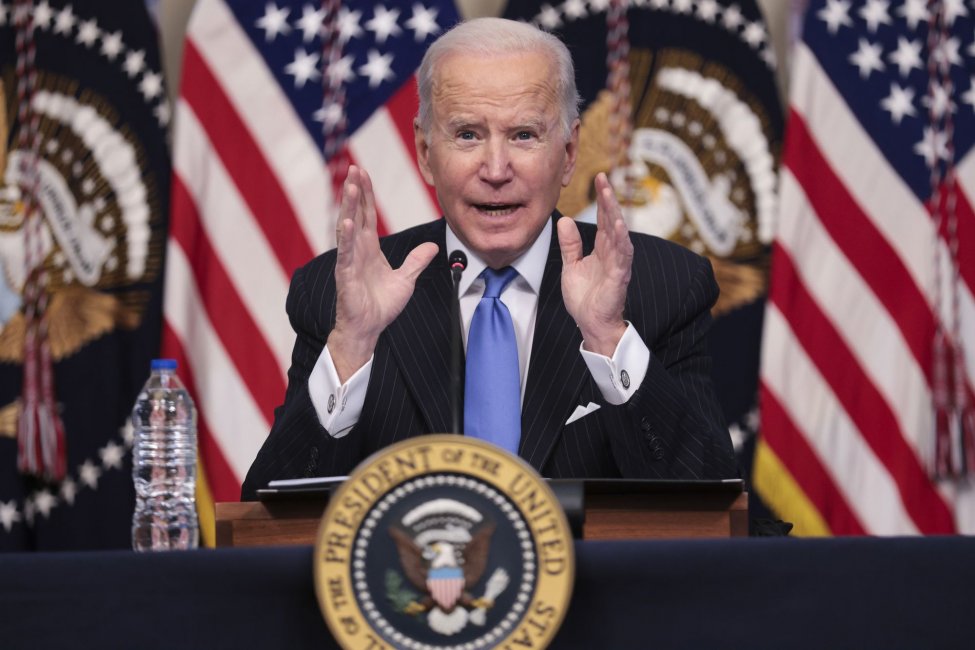The Biden-Harris administration on Monday opened an investigation into retailers, and not itself, to scrutinize the supply chain crisis.
The probe is a repeated strategy from November when the administration opened a Department of Justice probe into oil companies for allegedly “gouging people.” The investigations into private companies is an Obama-era tactic deployed to displace blame on failed administrative policies to the private sector.
The Federal Trade Commission (FTC) probe into nine massive retailers demands “detailed information” to explain how supply chain disruptions “are causing serious and ongoing hardships for consumers and harming competition in the U.S. economy,” the agency announced Monday.
FTC launches inquiry into supply chain disruptions: https://t.co/nZDkCFey3F
— FTC (@FTC) November 29, 2021
FTC Chair Lina Khan excused the private sector investigation by claiming the supply chain crisis must be studied to “deepen” the Biden-Harris administration’s “understanding” of “business conduct.”
“The FTC has a long history of pursuing market studies to deepen our understanding of economic conditions and business conduct, and we should continue to make nimble and timely use of these information-gathering tools and authorities,” Khan wrote.

FTC Commissioner nominee Lina M. Khan testifies during a Senate Commerce, Science, and Transportation Committee nomination hearing on April 21, 2021 in Washington, DC. (Photo by Graeme Jennings-Pool/Getty Images)
The probe, consuming businesses’ time and money, will specifically consist of gathering operational data to expose the points of crisis in the supply chain, along with company practices that are said to increase Bidenflation. The companies must comply with the investigation within 45 days.
The companies under FTC scrutiny include Walmart, Amazon, Kroger, C&S Wholesale Grocers, Associated Wholesale Grocers, McLane, Procter & Gamble, Tyson Foods, and Kraft Heinz.
Supply chain-centric corporations are not the only ones placed under investigation during President Biden’s tenure. In November, Biden admitted he asked the Justice Department to investigate oil companies for price gouging.
“I have the attorney general taking a look at whether or not these gas companies are gouging people,” Biden said.
Biden’s policies, however, are likely to blame for much of the supply chain crisis and soaring oil prices. Biden instituted coronavirus pandemic policies in the spring that paid individuals not to work and sent stimulus checks out even though the economy was well into a recovery. As a result, many laborers chose to take a larger government check instead of participating in the economy, causing a nationwide labor shortage, and demand for goods soared due to the additional income.
The labor shortage has impacted the supply chain. For instance, trucking companies are short about 80,000 drivers. The labor shortages have rippled through the economy, slowing down the transport of goods while increasing inflation to a thirty-year high.
The lack of truck drivers has left hundreds of cargo ships waiting to unload containers onto the docks. The port backlog has caused shipping prices from Asia to the United States to increase from around $5,000 per container to nearly $20,000.
Oil and gas prices have also increased due to Biden’s war on energy. The tactics include issuing a report Friday to increase the price of oil leasing fees on federal lands in the United States by 50 percent, along with canceling the Keystone XL Pipeline in January. Biden is also weighing whether to terminate the Michigan Line 5 pipeline. Biden has also rejoined the Paris Climate Accords and is directing an environmental regulatory review of repairs performed by the Trump administration that protected American energy independence.
Last week, Biden began raiding the Strategic Petroleum Reserve to reduce gas prices, despite Vice President Harris slamming Trump in 2020 for refilling them. The impact of draining the reserve was an oil price increase. Because of the constraints on pipeline capacity, the United States’ output from the reserve is 4.5 million barrels per day.
Follow Wendell Husebø on Twitter @WendellHusebø.


COMMENTS
Please let us know if you're having issues with commenting.